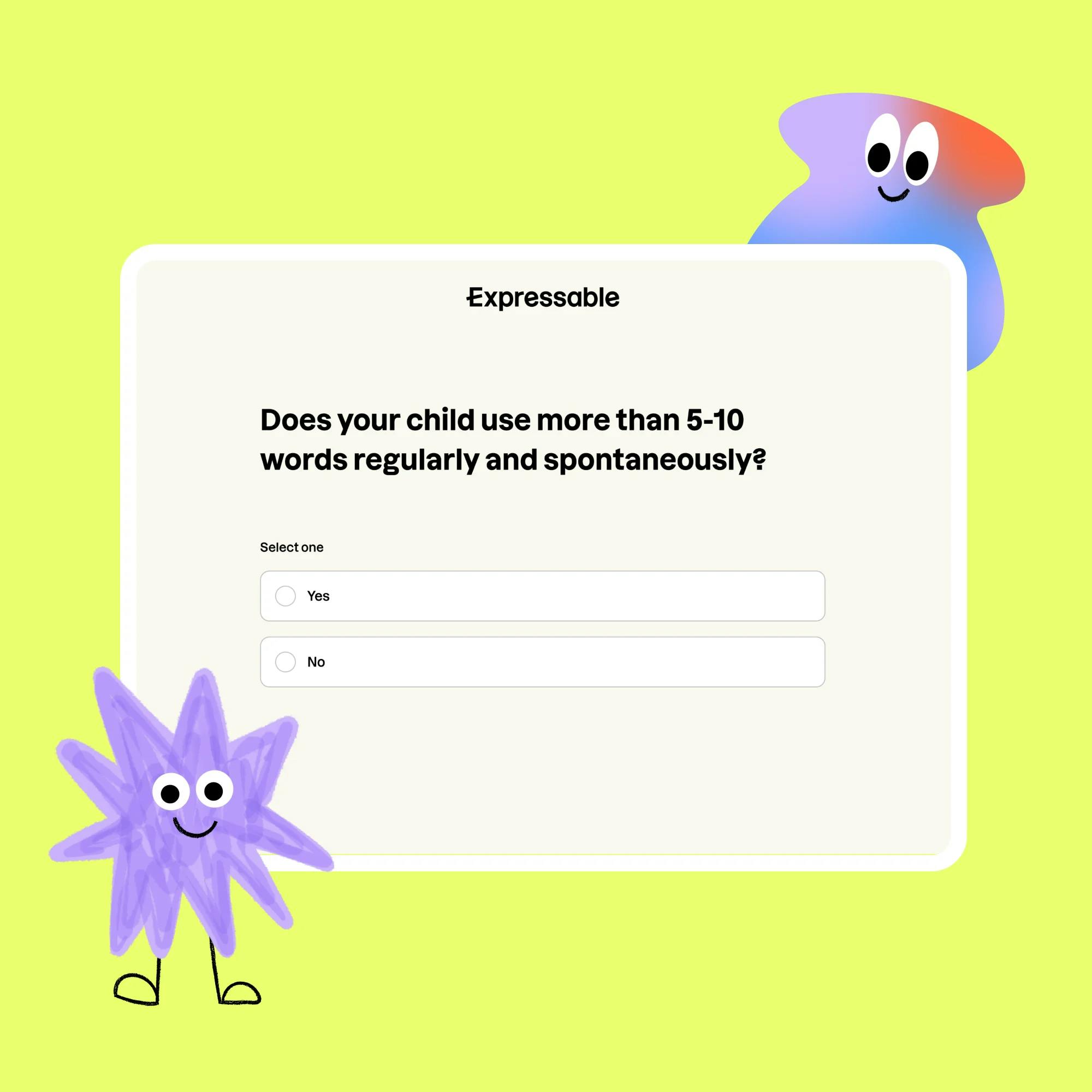Whether your child is starting daycare, preschool, or simply a new school year, if they have a tough time talking, you may feel a bit nervous. Your child is entering a new environment, with new people who may not know them well. You may wonder if they’ll be able to clearly communicate and express themselves. Will their teachers know what they need? Will they be able to make friends easily?
All of these thoughts and concerns are completely normal. But remember, teachers work with hundreds of kids who have all kinds of different needs. Chances are, they’ve taught and cared for children with communication issues similar to your child’s. Plus, there are things you can do to set your child up for success, whether they have a language delay, a stutter, or trouble pronouncing words clearly. In this article, we’ll discuss how to create an action plan that covers:
How to communicate your child’s needs to their daycare provider or teacher
How to keep the door of communication open throughout the school year
What to do if you think your child might need speech therapy
It all starts with scheduling a meeting with the people who will be teaching and caring for your child.


Meet your child’s daycare providers or teachers
Before your child begins daycare or school, or within the first few weeks, plan to meet with your child’s teachers. Depending on your child’s age and their school, you may need to ask for a meeting to be set up, or you may already have one scheduled for you. Make sure that it’s a one-on-one meeting and not a general “meet the teacher” night for the whole class. You’ll be able to accomplish more if you can talk with your child’s teacher without interruption.
If your child has more than one teacher, ideally you can meet with all of them at once. If that’s not possible, try to make time for multiple meetings. A virtual or phone meeting is always an option, although meeting in person is best if possible.


Prepare for your parent-teacher meeting
Before your meeting, take some time to gather your thoughts. There’s likely a lot you want to say! The goal is to organize and share it in a way that’s easy for the teachers to understand, remember, and put into practice.
The goal is to organize and share information in a way that’s easy to understand, remember, and put into practice.
You might start off by writing down everything you want to communicate in detail. Then, organize your thoughts into main points, with details and examples listed to the side. Start with the most important points first, and try to make the information easy to follow. Here’s an example of one way to structure this information: James has difficulty following directions and expressing what he wants to say clearly. He has been diagnosed with a receptive and expressive language disorder. This means he has difficulty understanding what is spoken to him, as well as telling others what he needs.
During school, he may not always follow directions given to him, and he may not be able to answer questions or talk to others easily.
When giving him directions for classroom tasks, it would be helpful if you could show him what you need him to do. You may need to repeat the directions a few times as well.
His responses also may not seem to make a lot of sense or may sound "jumbled." If you could ask him simple questions, one at a time, that will help him communicate more clearly.
If your child receives speech therapy or any other services or support, be sure to tell the teacher. Test results and progress reports are great to pass along!
Also, make sure to note any questions you have. This is a time to inform your child’s teachers about their needs, but it’s also a chance for you to ask questions about the school, the environment, the daily schedule, and how the classroom operates.


Tips for your parent-teacher meeting
When it comes time for your meeting, start off positive, and take a few minutes to introduce yourself. In addition to sharing information, it’s important to get to know your child’s teachers and start forming a relationship. After all, you’ll be partnering with each other all year long.
Be sure to bring any necessary paperwork to the meeting. This might be a typed version of the main points discussed above, reports from your child’s therapists, or medical information. It’s a good idea to have paper copies for everyone at the meeting. You can also send a follow-up email with electronic scans of the documents in case the paper copies get misplaced.
Bring a pen and paper to the meeting and take notes as needed. As you talk with your child’s teachers, pause and give time for them to comment or ask questions. They may be able to share creative ideas or techniques that have worked well with other children. And don’t forget to ask your questions as well!
Stay in touch with your child’s teacher all year long
While this first meeting is very important, it shouldn’t be the only time you talk with your child’s teachers or daycare providers. You should actively communicate with each other throughout the school year. You may want to hear updates on the following:
How well your child is able to express their needs
How they’re getting along with other children
What their behavior is like
Whether they seem stressed or anxious
Let your child’s teachers know that they can call, email, or text you (whichever you prefer) at any time. When teachers know this, it’s more likely that you’ll receive updates.
You can let your teachers know that you’ll check in occasionally, too. Maybe it’s every week at the beginning of the school year, and then once a month as the year goes on. Set a schedule of whatever works best for you and will fit your child’s needs.


Does your child need a speech evaluation?
Trust your instincts. If you think your child might be delayed in their speech or language, or other people can't always understand what they say, an evaluation by a speech-language pathologist may be needed.
It helps to be familiar with developmental milestones to see how your child is doing compared to others their age. Below are some of the key speech and language milestones for children ages 3 to 5.


Speech and language milestones for 3-year-olds
Understands directional concepts such as under, behind, in front of, in, on
Understands a variety of verbs
Uses at least 3- to 4-word sentences
Starts to express their emotions using words
Asks and answers a variety of “WH” questions (what, where, who, etc.)
Speech is intelligible about 80% of the time
You should not be hearing any persistent and continual stuttering in your child’s speech
Speech and language milestones for 4-year-olds
Follows multistep directions
Understands time-based words like yesterday, today, tomorrow
Answers questions clearly and correctly
Participates in back-and-forth conversation with others easily
May still have trouble pronouncing the sounds /l/, /s/, /r/, /v/, /z/, “ch,” “sh,” or “th,” but all other speech sounds are produced correctly
You should not be hearing any stuttering in your child’s speech
Speech and language milestones for 5-year-olds
Should be able to tell stories, either about their day or made up
Forms a variety of sentences with correct sentence structure, such as compound and complex sentences
Answers simple questions about a story read to them
Can rhyme words
All speech sounds should be produced correctly
You should not be hearing any stuttering in your child’s speech
If your child is not meeting the skills for their age group, it’s a good idea to see a speech therapist for an evaluation. The speech therapist will examine a variety of areas of your child’s speech and language development in order to assess their current strengths and weaknesses.


If speech therapy is recommended, your speech therapist will create an individualized treatment plan for your child to help them start gaining speech and language skills.
It’s important to find the right speech therapist for your child and stay in communication with them, just as you do with your child’s teachers. Your kiddo will have a dedicated group of professionals on their side, all working together to help them learn to communicate clearly and confidently!

 Abby Barnes, M.S., CCC-SLP
Abby Barnes, M.S., CCC-SLP











